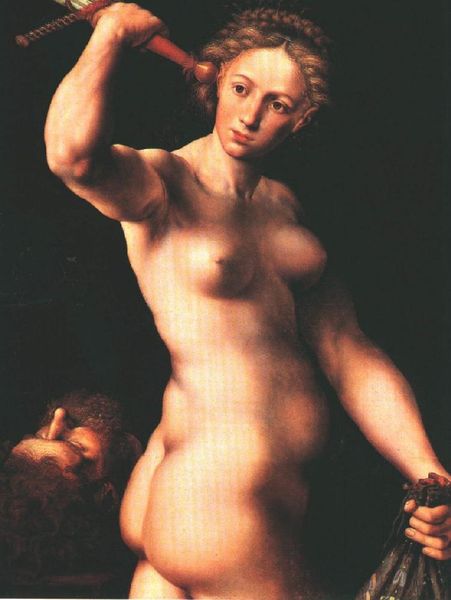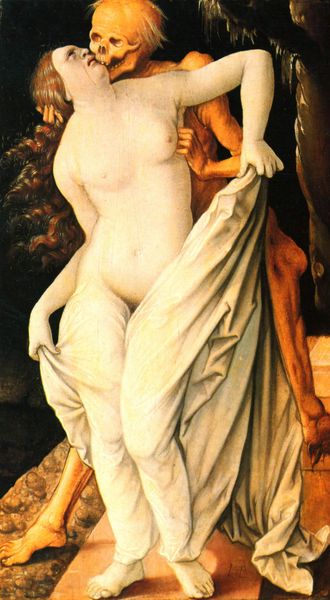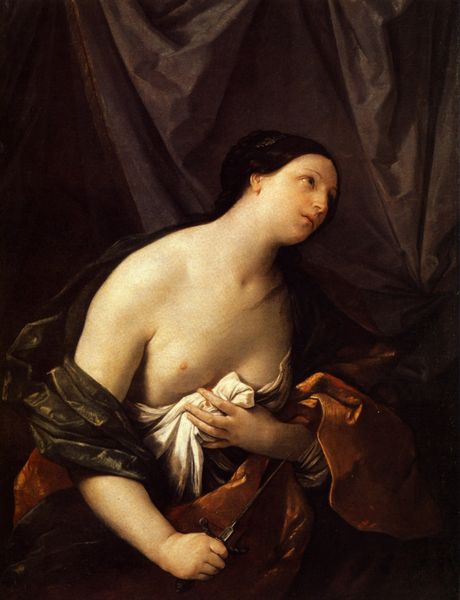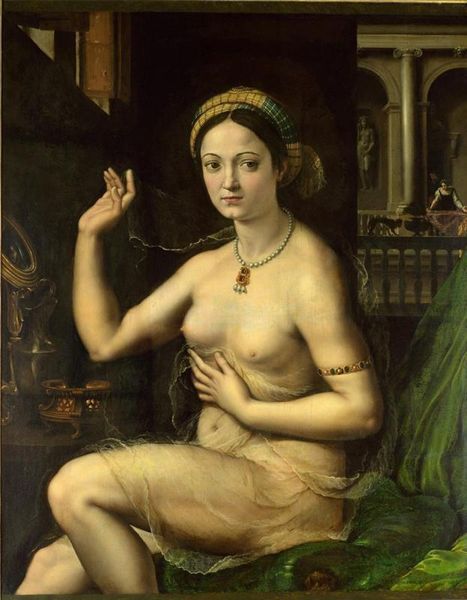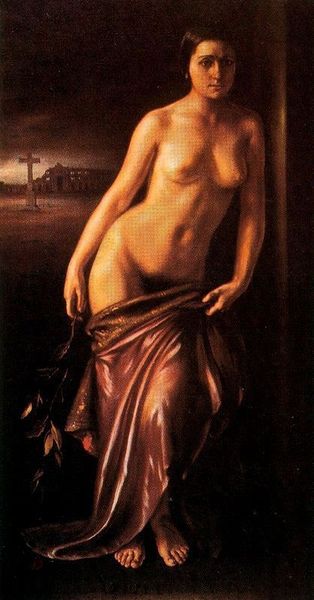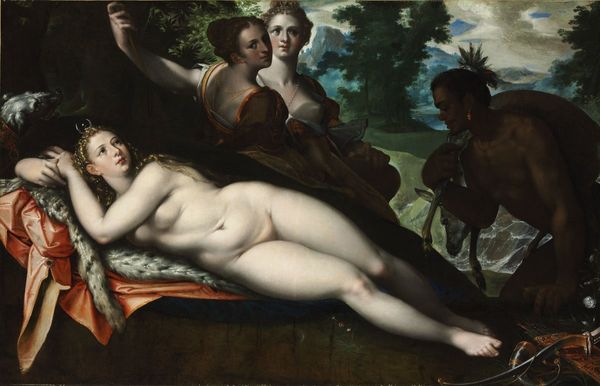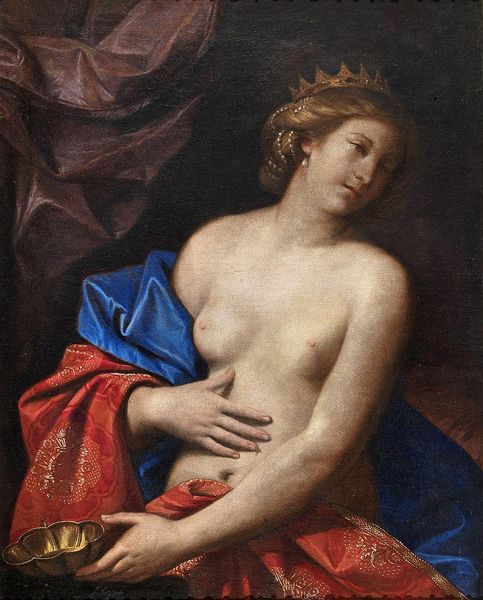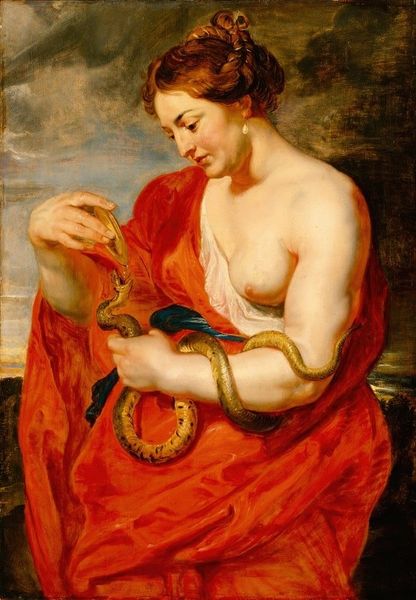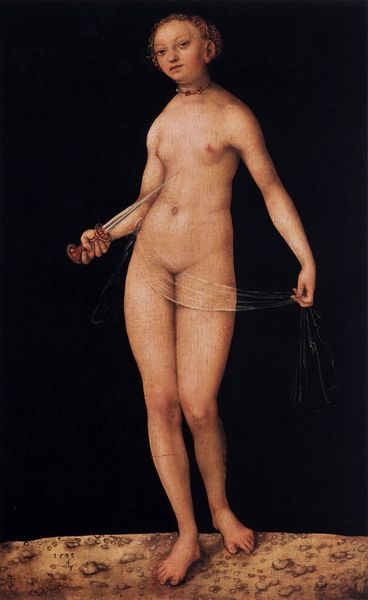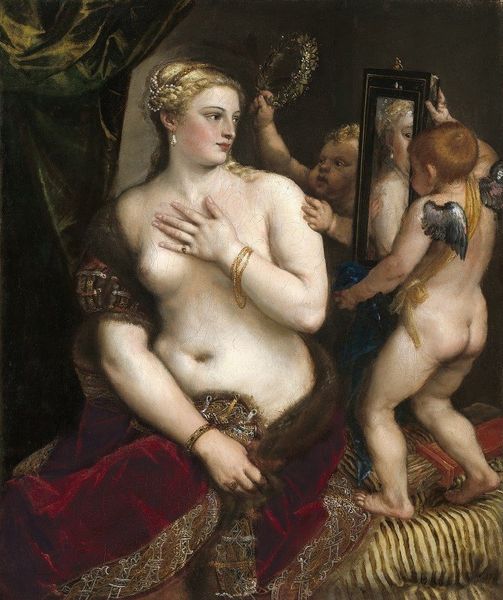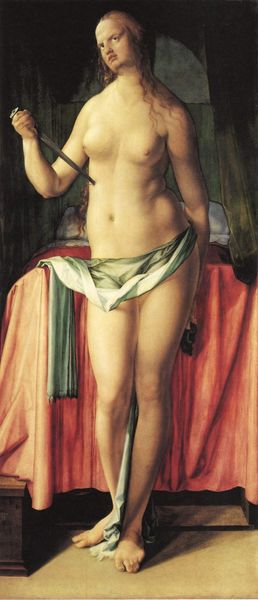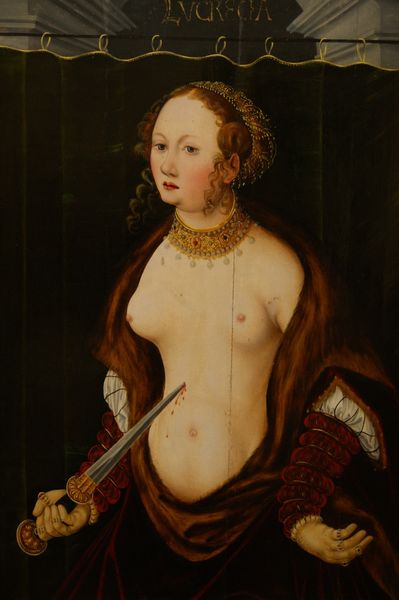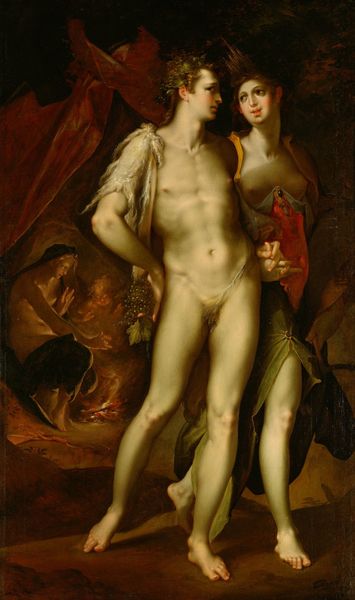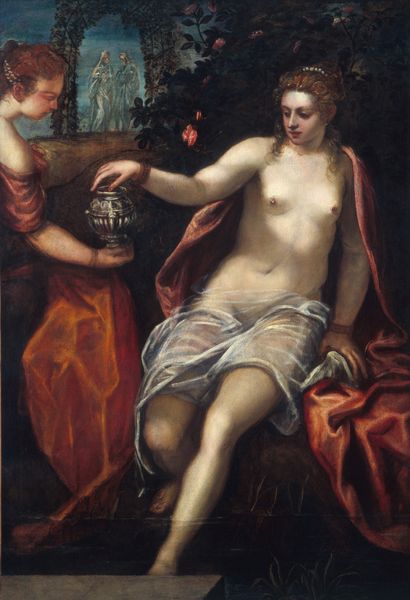
painting, oil-paint
#
portrait
#
allegory
#
painting
#
oil-paint
#
mannerism
#
history-painting
#
nude
#
erotic-art
Copyright: Public domain
Curator: Looking at this image, the most immediate impact stems from its unsettling subject matter and high drama. Editor: Indeed. This is titled “Death of Lucretia,” a painting attributed to Bartholomeus Spranger, rendered in oils. It captures the tragic suicide of Lucretia, a Roman noblewoman, a tale steeped in early Roman history and morality. Curator: Her expression…it's remarkably serene given the violence she’s enacting on herself. Her gaze upward suggests an almost ethereal detachment from the earthly pain. Editor: That detachment, or perhaps defiance, speaks volumes about the historical context. Lucretia, having been violated by Sextus Tarquinius, took her own life to preserve her honor and spark a revolt against the tyrannical Roman monarchy. Her suicide, therefore, became a symbol of resistance and the birth of the Roman Republic. The phallic violence perpetrated on her by Sextus is internalized and redeployed. Curator: Yes, exactly. And notice how Spranger portrays her—the idealized form, the classical drapery… it elevates her beyond mere victimhood. She is now an archetype. The artist makes sure the sword occupies much of the scene, it feels too large in the scene almost as a signifier of male power. Editor: While I agree with the archetype element, let's not overlook the potential for fetishization here. Lucretia’s idealized, semi-nude depiction serves, perhaps, to titillate even while it moralizes. How much are we aestheticizing trauma for patriarchal gain? Curator: I see your point, there is an element of objectification, certainly, though I read the partially covered breast more as vulnerability and perhaps even innocence rather than a sexual element per se. Editor: And that gets to the nub of it doesn’t it? How female virtue is invariably linked to their bodies as commodities through an art historical lens that perpetuates said commodification. Curator: Well, our discussion shows that art doesn't live in a vacuum. Historical context is everything and interpretations do change over time. Editor: Precisely. "Death of Lucretia" becomes more than just a historical painting; it’s a conversation about power, morality, representation and what is retained in the cultural imagination.
Comments
No comments
Be the first to comment and join the conversation on the ultimate creative platform.
